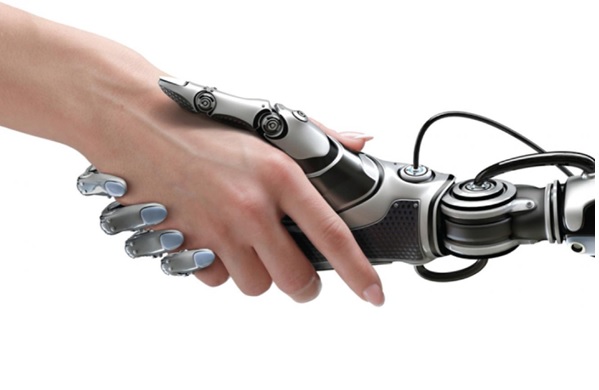The First Machine Age, also called the Industrial Age was all about automation of manual labour and horse-powered machines. It started in the 17th century and progressed on a massive scale until the last few decades of the 20th century. The impact was profound – science and technology advanced like never before – it helped humans reach the longest life span and have comfort and conveniences like never before… Then Information Technology started to take centre stage.

With it, the advent of the Second Machine Age[1], wherein large-scale automation has progressed –– with many human intelligence based functions being taken over by algorithms. This is made possible by massive data analytics, machine learning and the Internet of Things — with 200 billion[2] devices estimated to be connected to the Internet by 2020, all of them generating unimaginable quantities of data.
What are the possibilities of the Second Machine Age? Artificial intelligence, self-driven cars, pilotless civil and military aircrafts, insight into consumer behaviour, devices that do tasks that are dangerous to humans are examples frequently spoken about. Software grading students’ essays more objectively, consistently and quickly than humans and adaptive learning – wherein algorithm customises learning based on the need of each individual – are all part of the Second Machine Age.
What is the impact of the Second Machine Age? There will be disruptions in the employability landscape. The traditional White and Blue collar jobs will dwindle and the gig economy, characterised by the prevalence of short-term contracts or freelance work will dominate. Opportunities will be available for those who are prepared for the 21st century learning goals – with cognitive, social and emotional skills aligned to the needs of the era, that are vastly different from the industrial age. To impart these skills, our education system that was designed for the needs of the Industrial Age needs an urgent makeover.
ThinkTac is endeavouring to align learning outcomes with the needs of the Second Machine Age. Tactivity™ (tactile based activities) with life-skills (cognitive, social and emotional) integration is at the core of ThinkTac’s solution proposition. While commencement of the academic year 2017-18 is around the corner, ThinkTac is looking forward to partner with the educators and schools to facilitate educator-led Tactivity™ driven learning goals for the students, as well as offer an opportunity for individual students to learn via our online cohort platform.
[1] Authors of the book – Erik Brynjolfsson and Andrew McAfee
[2] http://www.intel.com/content/www/us/en/internet-of-things/infographics/guide-to-iot.html
